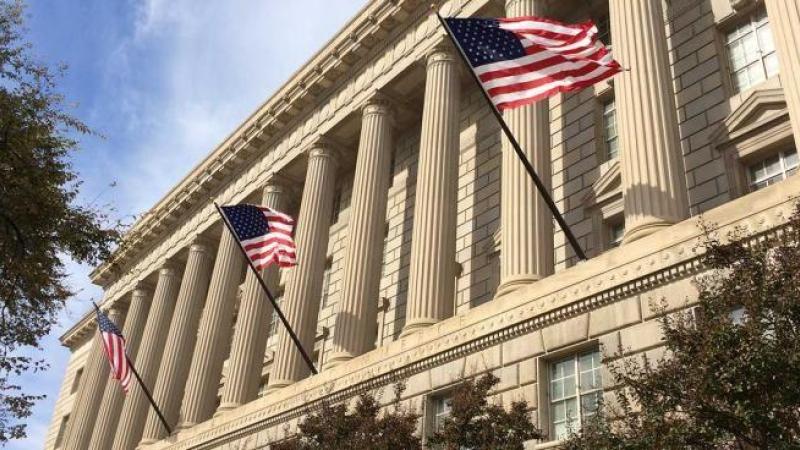Bidenomics? Recession concerns revive as deficit swells, U.S. debt exceeds $253K per taxpayer
America is reportedly on track to exceed $50 trillion in debt by 2033.
A CNN poll published last week found that just over half the country is pessimistic about the U.S. economy under Joe Biden. The poll was conducted by telephone calls to 1,279 households and disclosed a +/- 3% margin of error. Despite President Biden boasting that "Bidenomics" is a positive development, the numbers appear to tell a different story.
America’s national debt has ballooned from $26.94 trillion in 2020 to $32.68 trillion today, according to the U.S. Department of the Treasury. Counting roughly 2.5 years into Biden’s first presidential term, the debt translates to more than $253,000 for each taxpayer. Moreover, data from the Congressional Budget Office (CBO) shows the federal deficit for FY2023 is already at $1.6 trillion, a 120% increase from this same time last year.
That number is projected to hit $2 trillion per year over the next decade, according to a February CBO report, which would put the United States in debt at roughly $52 trillion by 2033.
This is just one of many reasons financial analysts are becoming increasingly concerned about a potential recession. Economist Neil Dutta expressed this in a Business Insider op-ed last month, writing that "I have for a long time been an optimist when it comes to the economy… However, I'm starting to change my outlook, and for several reasons, I now believe that a recession is more likely than not."
Dutta cites the "increasingly hawkish" Federal Reserve and its "aggressive campaign of interest-rate hikes," among other things.
Just last week, Fitch Ratings downgraded America’s credit rating to reflect "the expected fiscal deterioration in the days ahead. Both it and Moody’s predict a "mild" recession will hit by late 2023 or early 2024.
Some have dismissed these concerns, touting July’s GDP report, which showed 2.4% growth. Politico went as far as to say "many economists think the U.S. is out of the woods." However, Dave Brat, economist and former dean of the Liberty University School of Business, explained why he says this can’t be taken at face value.
"If you run a $2 trillion deficit, that's that stimulative," Brat, who also served in Congress representing VA-7, said. "That pumps up the economy, and it's the government spending, and that counts toward GDP growth. But you're in debt $2 trillion to your people—so is that economic growth? I don’t think so."
At the end of the day, Brat said, the burden will eventually fall on young people to pay it all back.
As far as a recession goes, Brat said it’s "very complex" to project.
"Every economist in the world said we're going to be in recession by now. But what they got wrong was they didn't think the government could be so incompetent to raise the debt ceiling, and then have $7 trillion budgets for the next four years" and "running $2 trillion deficits."
Follow Addison on Twitter.
















